Uncategorized
-
 Science & Society
Science & SocietyBig data studies come with replication challenges
As science moves into big data research — analyzing billions of bits of DNA or other data from thousands of research subjects — concern grows that much of what is discovered is fool’s gold.
-
 Chemistry
ChemistrySodium and other alkali explosions finally explained
A high-speed camera snaps sharp details of how alkali metals explode in water — a classic, but until now, not fully explained chemical reaction.
By Beth Mole -
 Climate
ClimateWarming could nearly double rate of severe La Niña events
Changing climate in the western Pacific could roughly double the frequency of severe La Niña events that cause extreme weather shifts across the globe.
-
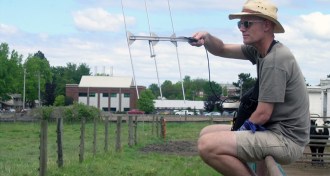 Life
LifeFast and furious: The real lives of swallows
In the fields of Oregon, scientists learn flight tricks from swallows.
By Nsikan Akpan -
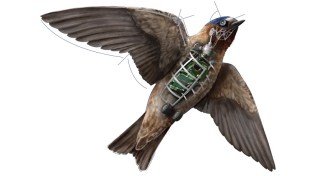 Life
LifeFlying animals can teach drones a thing or two
Scientists have turned to Mother Nature’s most adept aerial acrobats — birds, bees, bats and other animals — to inspire their designs for self-directed drones.
By Nsikan Akpan -
 Neuroscience
NeuroscienceDecoding sommeliers’ brains, one squirt of wine at a time
Researchers use a ‘gustometer’ to control wine portions in experiments comparing the brains of sommeliers and novices.
-
 Planetary Science
Planetary ScienceDecades-old idea brought to fruition: a mission to Mercury
In 1965, engineers proposed sending a spacecraft to Mercury with help from another planet’s gravity – a technique now used in many interplanetary missions.
-
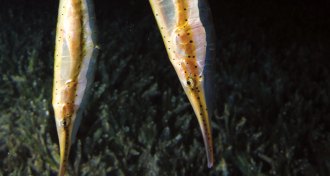
-
 Physics
PhysicsHow blueshift might beat redshift
Even though the expanding universe makes light redder, light emitted by collapsing stars and dust clouds could appear unusually blue.
By Andrew Grant -
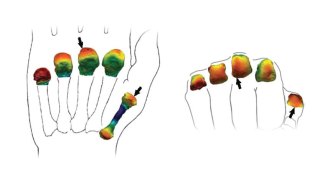 Anthropology
AnthropologyScans tell gripping tale of possible ancient tool use
South African fossils contain inner signs of humanlike hands, indicating possible tool use nearly 3 million years ago.
By Bruce Bower -
 Planetary Science
Planetary ScienceRosetta reveals a complex comet
Rosetta finds diverse landscapes on comet 67P, which could provide researchers with clues about how the solar system formed.
-
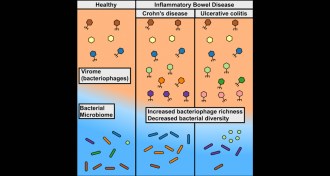 Life
LifeWhen bacteria-killing viruses take over, it’s bad news for the gut
A rise in some bacteria-killing viruses in the intestines may deplete good bacteria and trigger inflammatory bowel diseases.